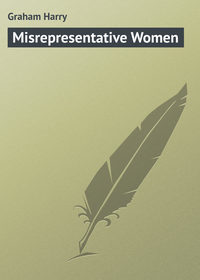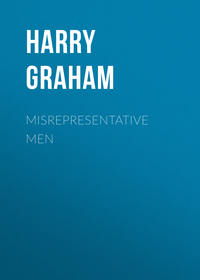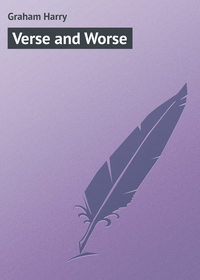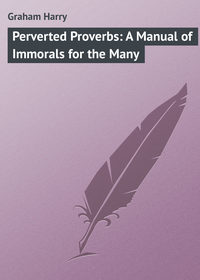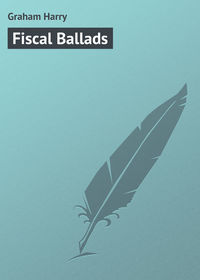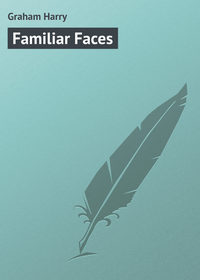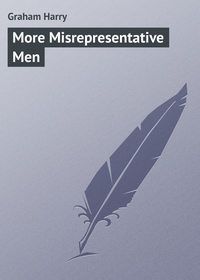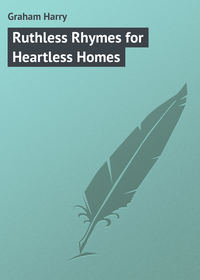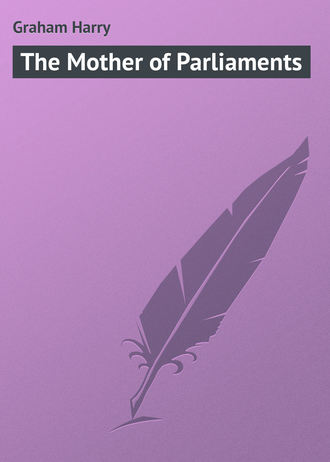 полная версия
полная версияThe Mother of Parliaments
Irish members have probably been the cause of more parliamentary disturbance than all the rest of their colleagues put together. Daniel O'Connell, whom Disraeli once called "the vagabond delegate of a foreign priesthood,"295 was a perpetual source of trouble to the House. In 1840, he was the centre of one of the most noisy scenes that has ever outraged its dignity. Macaulay declared that he had never before or since seen such unseemly behaviour, or heard such scurrilous language used in Parliament. Members on both sides of the House stood up and shouted at the tops of their voices, shaking their fists in one another's faces.296 Lord Norreys and Lord Maidstone particularly distinguished themselves by the pandemonium they created, while others of their colleagues gave farmyard imitations, and for a long time the whole House continued in a state of ferment. O'Connell's reference to the sounds emitted by honourable gentlemen as "beastly bellowings" only made matters worse. As a French visitor who was present during this scene has described: "Pendant plusieures heures plus de cinq cents membres crient de toutes leurs forces 'à l'ordre! à la porte O'Connell!' le tout accompagné des imitations zoologiques les plus étranges et les plus affreuses. C'étaient les cris de deux armées de sauvages en presence."297
"Imitations zoologiques" have always been a popular but by no means the only method employed by members desirous of drowning the words of a tiresome speaker. John Rolle, the hero of the "Rolliad," promoted a "smoking and spitting party "to interrupt and annoy Burke.298 In 1784, the latter told a number of youthful opponents who interrupted him with their howls that he could teach a pack of hounds to yelp with more melody and equal comprehension. Ten years before the O'Connell scene Brougham excited the House to uproar of a similarly puerile character. He remained calm and unmoved, however, and, when the bestial cries of his audience subsided for a moment, pleasantly observed that by a wonderful disposition of nature every animal had its peculiar mode of expressing itself, and that he was too much of a philosopher to quarrel with any of those modes – a remark which does not appear to have subdued the clamour to any appreciable extent.299 A similar uproar which the Speaker was powerless to quell arose in 1872, when Sir Charles Dilke brought forward a motion to inquire into the manner in which the income and allowances of the Crown were spent.
Members who are anxious to bring a debate to a close still have recourse to sound, crying, "'Vide! 'Vide!" in an earsplitting fashion, which occasionally evokes a rebuke from the Speaker. But there is seldom, nowadays, such a scene of violence as occurred in both Houses upon the dissolution of Parliament in April, 1831. The Commons indulged in a painful scene "of bellowing, and roaring, and gnashing of teeth, which it was almost frightful to look at," says Cockburn.300 In the Upper House peers behaved no less childishly. Lord Mansfield doubled up his fist, elbowed Lord Shaftesbury into the Chair, and hooted Lord Brougham as he left the House.301 Lord Lyndhurst, meanwhile, was threatening the Duke of Richmond with physical violence, and the uproar was only quelled by the arrival of the King.302 One must not, of course, forget the notorious modern instance of ill manners, already described,303 when, in 1893, members exchanged blows upon the floor of the Commons. This, however, is a painful exception, little likely to recur.
Politicians have learnt to control their feelings, and the present publicity of parliamentary proceedings acts as a salutary deterrent to outbursts of the elemental passions. Neither House to-day would dream of expressing its emotion in the open fashion common to Parliaments of long ago. The sight of a Lower Chamber dissolved in tears is no longer possible. Yet, in 1626, when, by the King's command, no discussion was permitted on the question of Buckingham's impeachment, a lachrymose Speaker led the whole House of Commons in a chorus of weeping. Two years later Sir Edward Coke welcomed the introduction of the Petition of Right in a voice choked with sobs. Wingfield wept for joy when monopolies were abolished in Queen Elizabeth's reign,304 and we have already noted the tears shed by Colonel Wanklyn when he was expelled, and by Speaker Finch when he was forcibly detained in the Chair. Fox shed frequent tears in the House of Commons; Pitt wept bitterly when his friend, Lord Melville, was impeached. Lord Chancellors, too, were not ashamed to express their feelings in loud sobs, Eldon's eyes becoming sympathetically moist, while even the "rugged Thurlow" sprinkled the Woolsack with his tears.
Members no longer weep, except perchance in the privacy of their own homes; nor do they follow their predecessors' fashion of converting the House of Commons into a smoking-room or a lounge, in which to sleep off the effects of their potations. The free and easy habits of seventeenth-century politicians made it necessary for a regulation to be framed that "No tobacco should be taken by any member in the gallery, nor at the table sitting in Committees."305 And it was no uncommon sight, a hundred years ago, to see members stretched at full length on the benches of the Chamber, with their feet resting on the backs of the seats in front of them, punctuating the proceedings with their stertorous snores.306
Lord North was notorious for his gift of somnolence in the House of Commons. "Behold," said Edmund Burke, with that indifferent taste for which he was noted, as he pointed to the recumbent figure of the Prime Minister, "the Government, if not defunct, at least nods; brother Lazarus is not dead, but sleepeth." North was dozing on another occasion when a member attacked him fiercely, saying that he ought certainly to be impeached for his misdeeds. "At least," exclaimed the Minister, waking for a moment, "allow me the criminal's usual privilege – a night of rest before the execution!"307 He felt no shame at giving way to slumber in debate, and when an opponent remarked that "Even in the midst of these perils, the noble lord is asleep!" "I wish to God I was!" he replied with heartfelt fervour.308 He would always take the opportunity afforded by a lengthy speech to snatch forty winks. Once, when the long-winded Colonel Barré was addressing the House on the naval history of England, tracing it back to the earliest ages, North asked a friend to wake him up as soon as the speaker approached modern times. When at length he was aroused, "Where are we?" asked the Premier, anxiously. "At the battle of La Hogue, my lord." "Oh, my dear friend," said North, "you've woken me a century too soon!"309
A marked improvement in the conduct of modern debate is to be noticed in the comparatively inoffensive character of the epithets used by members with reference to their opponents. The decencies of debate are, as a rule, religiously observed. Recriminations are rare. Measures are attacked, not men. The secession of a statesman is considered a political but not a personal offence, and what Palmerston once called the "puerile vanity of consistency" is no longer worshipped fanatically. Gladstone rightly called the House of Commons a "school of temper," as well as a school of honour and of justice. Offensive allusions have always been deprecated there, but it is only within the last few score years that members have controlled their tongues to any appreciable extent in this direction. Hasty remarks are nowadays withdrawn at the first suggestion of the Speaker, though on occasion an apology may be as offensive as the original insult. Lord Robert Cecil (afterwards Lord Salisbury) said of a speech of Gladstone's in 1861, that it was "worthy of a pettifogging attorney." Soon afterwards he rose in the House, and said that he wished to apologise for a remark he had lately made. "I observed that the speech of the right hon. gentleman was worthy of a pettifogging attorney," he said, "and I now hasten to offer my apologies – to the attornies!"
It is usual nowadays to wrap up offensive criticisms in a more or less palatable covering, to attack by inference rather than by direct assault. "I am no party man," said Colonel Sibthorpe, member for Lincoln, after the dissolution of Sir Robert Peel's Government. "I have never acted from party feelings; but I must say I do not like the countenances of honourable gentlemen opposite, for I believe them to be the index of their minds. I can only say, in conclusion, that I earnestly hope that God will grant the country a speedy deliverance from such a band."310 This is a good example of an unpleasant thing framed in a manner which does not lay it open to the stigma of disorderly language, and is just as effective as that oft-quoted attack made by a member of the Irish House of Commons on George Ponsonby (afterwards Irish Chancellor), whose sister was sitting in the gallery at the time. "These Ponsonbys are the curse of my country," said the member; "they are prostitutes, personally and politically – from the toothless old hag who is now grinning in the gallery to the white-livered scoundrel who is now shivering on the floor!"311
Members who consider themselves aggrieved or insulted have now no redress save by an appeal to the Speaker. In old days they often took the matter into their own hands, and many a duel was the outcome of hasty words spoken in Parliament. So prevalent, indeed, did the habit of duelling become, that in 1641 a resolution was passed in the Commons empowering the Speaker to arrest any member who either sent or received a challenge. The practice of parliamentary duelling long continued, in spite of every effort to stifle it. Wilkes was wounded in 1763 in Hyde Park by a member named Martin, who had called him "a cowardly scoundrel." Lord Castlereagh and Canning met in 1809, and had, in consequence, to resign their seats in the Cabinet.312 Lord Alvanley fought Morgan O'Connell, son of the Liberator, on his father's account. Charles James Fox was challenged by Mr. Adam, of the Ordnance Department, for a personal attack made in the House of Commons, and faced him in the old Kensington Gravel Pits. At the first shot Adam's bullet lodged harmlessly in his opponent's belt. "If you hadn't used Ordnance powder," said Fox, with a laugh, as he shook hands with Adam after the fight, "I should have been a dead man."313
If duels were fought in those days on very slight provocation, challenges were also occasionally declined on equally poor grounds. Colonel Luttrell, member for Middlesex, and afterwards Lord Carhampton, refused to fight his own father, not because he was his father, but because he was not a gentleman!
The last duel between politicians was that fought by the Duke of Wellington and Lord Winchelsea, as the result of some remarks made by the latter during a debate on the Roman Catholic Emancipation Bill in 1830. Since that time no parliamentary dispute has been referred to the arbitrament of the pistol.
Although there has been a perceptible improvement in parliamentary deportment as the centuries have advanced, the same can scarcely be said of parliamentary dress. In the time of Charles II., knee-breeches, silk stockings, and silver-buckled shoes were absolutely de rigueur for members of the Commons. A hundred years later members of Parliament always wore court dress, with bag-wig and sword, in the House. The formal costume prescribed by etiquette was rigidly adhered to, and none but county members were permitted the privilege of wearing spurs.314 At this time, too, Cabinet Ministers were never seen in Parliament without the ribbons and decorations of the various orders to which they belonged. The regulation which bids the mover and seconder of the Address to appear in court dress on the first day of the new Parliament is the only relic of this custom.
Fifty years ago no member of either House would have appeared within the precincts of the Palace of Westminster wearing anything upon his head but a high silk hat. Gradually, however, a certain laxity in the matter of head-gear has crept into Parliament, and to-day, not only "bowlers," but even "cricketing caps" may be seen reposing upon the unabashed heads of members. Peers, as a rule, conform to the older fashion, and Cabinet Ministers usually dress in a respectably sombre garb. But among the rank and file of the House of Commons may occasionally be found members wearing check suits of the lightest and loudest patterns, and hats of every conceivable variety, ranging from the æsthetic "Homburg" to the humble cloth cap. The passing of the top hat must necessarily appear somewhat in the light of a tragedy to older parliamentarians. In both Houses the hat has long come to be regarded as a sacred symbol. It is with this article of clothing that the member daily secures his claim to a seat on the benches of the House of Commons; with a hat he occasionally expresses his enthusiasm or sympathy; on a hat does he sit at the close of a speech, with the certainty of raising a laugh; and without a hat he cannot speak upon a point of order when the House has been cleared for a division.
When the Labour Party began to take an important place in the popular assembly, it was thought that this democratic invasion would have an actively detrimental effect upon the dress of the House. Old-fashioned members shook their heads and prophesied an influx of hobnailed artisans, clad in corduroys, their trousers confined at the knee with string, and in their mouths a short clay pipe. These gloomy forebodings have not been realised. With very few exceptions the dress of Labour members is little calculated to offend the most sensitive eye, though it was certainly one of their number who first entered a startled House of Commons in a tweed stalking-cap – a form of head-dress which it is certainly difficult to forgive.
CHAPTER XII
PARLIAMENTARY ELOQUENCE
When Pitt was asked what he considered most to be lamented, the lost books of Livy, or those of Tacitus, he replied that to the recovery of either of these he would prefer that of a speech by Bolingbroke. Not a fragment of what Dean Swift called the "invincible eloquence" of that statesman is left to us. But though we are compelled to take his reputation as an orator on trust, we should do wrong to complain, for it is more than probable that a perusal of Bolingbroke's speeches to-day would prove disappointing.
"Words that breathed fire are ashes on the page," and the utterances that have stirred a thousand hearts in the Senates of old days too often leave the modern reader cold and unmoved. We miss the inflections of a magical voice, the stimulating plaudits of friends or followers, the magnetism that can only be communicated by a personal intercourse between a speaker and his audience. The reading of old speeches is, as Lord Rosebery has observed, a dreary and reluctant pilgrimage which few willingly undertake. It supplies, as a rule, but a poor explanation of the effect which the eloquence of past orators produced upon their contemporaries. It is like attending an undress rehearsal of a play in an empty theatre on a cold winter's afternoon. The glamour of costume, of limelight, is lacking; the atmosphere of appreciation, excitement, enthusiasm, is absent. The difference between the spoken and the published oration has been aptly defined as the difference between some magnificent temple laid open to the studious contemplation of a solitary visitant, and the same edifice beheld amidst the fullest accompaniments of sacrificial movement and splendour, thronged with adoring crowds, and resounding with solemn harmonies.315
It has often been affirmed that no speech in Parliament has ever resulted in the winning of a division. Byron declared that "not Cicero himself, nor probably the Messiah, could have altered the vote of a single lord of the Bedchamber or Bishop."316 There are, however, one or two instances of orations which have been so moving in their appeal that they may claim to be exceptions to this rule. Plunket's famous speech in the debate on Grattan's motion for Catholic Emancipation in 1807 is said to have gained many votes. Macaulay won the support of several opponents by an eloquent speech on the second reading of Lord Mahon's Copyright Bill in 1842, and, on a Bill introduced by Lord Hotham to exclude certain persons holding offices from the House of Commons, actually caused the anticipated majority to be reversed.
On one memorable occasion when Sheridan, with that impassioned oratory for which he had already become famous, was advocating the prosecution of Warren Hastings, the House of Commons was so stirred that a motion for adjournment was made in order to give members time to recover from the overpowering effect of his eloquence.317 Again, during the debate on Commercial Distress in December, 1847, Peel roused the fury of the Protectionists by a violent and able speech, and, when he resumed his seat, an adjournment was moved on the ground that the House was not in a condition to vote dispassionately. Burke, too, seems at times to have stimulated his hearers to an active expression of their emotion; and when he was lamenting the employment of Indians in the American War, a fellow-member was so moved that he offered to nail a copy of his speech upon the door of every church in the kingdom.318
Yet the speeches of Burke and Sheridan do not affect us to-day with anything but a mild enthusiasm, chiefly founded upon our admiration of their literary excellence. We remain comparatively indifferent to their appeal; our hearts beat no faster as we read.
Sheridan's two orations on the subject of Warren Hastings' impeachment – the one delivered in the House of Commons on February 7, 1787, and the other in Westminster Hall during the trial – have been considered among the very finest ever made in Parliament. It was after the first of these, which lasted for five hours, that the House adjourned to enable members to survey the question calmly, freed from the spell of the enchanter. Sheridan's style, according to Burke, was "something between poetry and prose, and better than either."319 Even the fastidious Byron declared him to be the only speaker he ever wished to hear at greater length. He was offered £1000 by a publisher for his great "Begum Speech," if he would but consent to correct the proofs; but for long he refused. Eventually he agreed to its publication, but by that time popular interest had subsided.320 As much as fifty guineas was paid for a seat to hear his speech at the trial of Hastings, when, as Ben Jonson wrote of Bacon, "the fear of every man that heard him was lest he should make an end."321
The speeches of Burke, whom Macaulay has described as the greatest man since Milton, are perhaps the most suitable for perusal of any ever delivered in Parliament. They read better than they sounded as delivered; they are rather pamphlets than orations. Burke himself was deficient in many of the qualities of an orator. His voice was harsh and his gestures ungainly. He never consulted the prejudices of his audience. His lapses from good taste were frequent, and among his most splendid passages may be found occasional coarse and vulgar epithets and expressions. Yet so great was his eloquence, so marvellous his oratorical powers, that Byron has included him with Pitt and Fox among the "wondrous three whose words were sparks of immortality." And the florid Dr. Parr can scarcely find words sufficiently eulogistic to sing his praises.322
In the seventeenth century parliamentary attendance and eloquence were equally poor. Not only did many members speak indifferently; at times there would be long intervals of silence when members did not speak at all. "A pause for two or three minutes," … "The House sat looking at each other,"323 are some of the entries in the reports which must strike the modern mind, accustomed to the present House of Commons, as peculiar. Steele described the House of his day as being composed of silent people oppressed by the choice of a great deal to say, and of eloquent people ignorant that what they said was nothing to the purpose.324
It was not until the Georgian age that parliamentary oratory reached its heyday. Then, too, speeches began to lengthen, and by the time Lord North became Prime Minister it was not unusual for a member to address the House for two or three hours on end. Lord Brougham once spoke for six hours on the amendment of the law. Even in Walpole's day occasional prolixity was not unknown. One Hutcheson, member for Hastings, when the Septennial Bill of 1716 was under discussion, made a speech of which the summary fills more than twenty-five pages of the Parliamentary History.325 Again, when David Hartley, a notorious bore, rose to speak one day, Walpole went home, changed his clothes, rode to Hampstead, returned, changed once more, and came back to the House to find this tiresome member still upon his legs.326
Chatham was the first statesman to make a habit of delivering long speeches. The practice was never popular, and has now fallen into desuetude. The rising to his feet of a tedious member has ever been the signal for the House to clear as though by magic. Sergeant Hewitt, member for Coventry in 1761, was a well-known parliamentary emetic. "Is the House up?" asked a friend of Charles Townshend, seeing the latter leaving St. Stephen's Chapel. "No," replied Townshend, "but Hewitt is!"327 The departure of his audience is, however, a hint to which the habitual bore is generally impervious. A dull and lengthy speaker, addressing empty benches in the House of Commons, whispered to a friend that the absence of members did not affect him, as he was speaking to posterity. "If you go on at this rate," was the unkind reply, "you'll see your audience before you!"328
When Gladstone brought in his first Budget in 1853 he spoke for five hours. He had been advised by Sir Robert Peel to be long and diffuse, rather than short and concise, seeing that the House of Commons was composed of men of such various ways of thinking, and it was important to put his case from many different points of view so as to appeal to the idiosyncrasies of each.329 In the days of his Premiership, however, Gladstone's speeches were considerably shortened, and even the introduction of so momentous and intricate a measure as the Home Rule Bill of 1886 was accomplished in three and a half hours. Lengthy speeches are no longer fashionable, though Mr. Biggar spoke for four hours on a famous occasion in 1890, and Mr. Lloyd George occupied the same time in unfolding the much-discussed Finance Bill of 1909.
Though the oratorical masterpieces of the past may, for the most part, be dull reading, to the student or historian they must always prove interesting and instructive, as revealing those peculiar qualities which appeal to a parliamentary audience. They explain to a certain extent what it is that a speech must possess in order to meet with the approval of either House.
Parliament – and more especially the House of Commons – is no very lenient critic; but it is a sound one. It pardons the faults of style or manner due to inexperience; it tolerates homeliness that is the outcome of sincerity. It has a keen eye for motives, and anything pretentious or dishonest is an abomination to it. Matter is of far greater importance than manner, and Parliament agrees with Sir Thomas More that whereas "much folly is uttered with pointed polished speech, so many, boisterous and rude in language, see deep indeed, and give right substantial counsel."330 Sincerity, in fact, has far more influence in the House of Commons than either brilliancy or wit, and any attempt at platform heroics is certain to fail. There is nothing the House is so fond of, Sheil used to say, as facts.331 There is nothing it so much resents, we might now add, as violations of good taste. This fastidiousness is no doubt of modern growth, for we find Burke's coarseness readily condoned, and Sheil himself lapsing into occasional vulgarity.332
Like all assemblies of human beings, Parliament has always welcomed an opportunity for laughter. In the House of Commons the poorest joke creates amusement; the man who sits upon his hat at once becomes a popular favourite; a "bull" is ever acceptable. When Sheridan, in 1840, attacked another member, saying, "There he stands, Mr. Speaker, like a crocodile, with his hands in his pockets, shedding false tears!" the House rocked with laughter.333 Yet the phrase did not originate with Sheridan, but was one of the many "bulls" that had been coined by that prince of bull-makers, Sir Boyle Roche. It was Roche who declared that he could not be in two places at once "like a bird"; who attempted to "shunt a question by a side-wind"; and announced that he was prepared to sacrifice not merely a part but the whole of the Constitution to preserve the remainder! "What, Mr. Speaker!" he inquired on a famous occasion in the Irish House of Commons, "are we to beggar ourselves for fear of vexing posterity? Now, I would ask the honourable gentleman, and this still more honourable House, why we should put ourselves out of our way to do anything for posterity; for what has posterity done for us?"334


